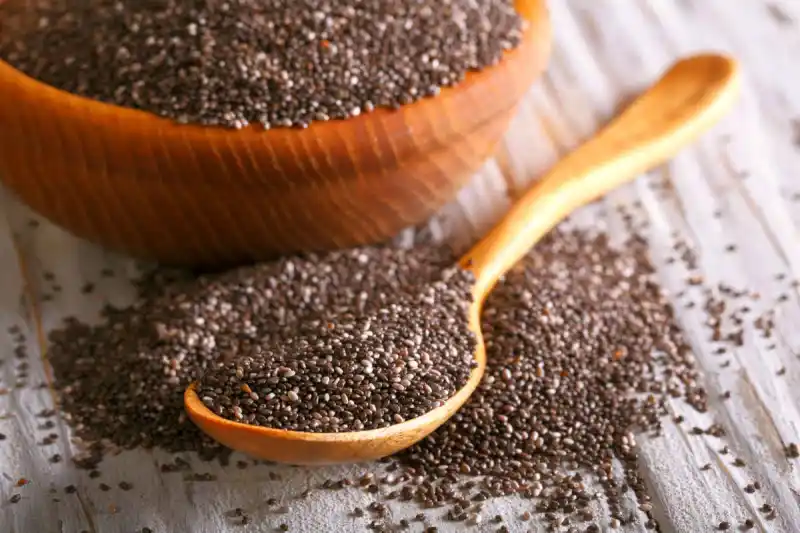Have you been wondering what a normal blood sugar level is and how to maintain a healthy level of it? Read on and allow me to explain to you what it is and what you can do to keep it normal.
RELATED: The Myth About Blood Sugars and Diabetes
In this article:
- What Is the Normal Blood Sugar Count?
- Most of the American Population Are Becoming Prediabetic and Diabetic
- What Is Prediabetes?
- What Causes Prediabetes?
- Prediabetic Symptoms
- Risk Factors That Increase the Development of Prediabetes
- How to Avoid Prediabetes and Normalize Blood Sugar
How to Keep a Normal Blood Sugar Level
What Is the Normal Blood Sugar Count?
The normal blood sugar level is typically between 80 and 100 mg/dL. Sometimes, it can go down to 70 mg/dL or lower if you completely give up on sugar. That is a totally normal situation.
But, what does 80-100 mg/dL of blood sugar mean? It means the ratio of how much sugar you have in your blood. For example, an average person of 165 pounds has 1 and 1/3 gallons of blood in their body. This means there is about 5 g (a little bit more of 1 teaspoon) of sugar in the blood for the normal ratio. If you dilute that amount of sugar in the blood, that would be 90 mg/dL.
Most of the American Population Are Becoming Prediabetic and Diabetic
You can actually convert protein and even fat into sugar. This also means you don’t need carbohydrates to get the normal blood sugar ratio. An average American consumes 31 teaspoons of sugar daily. That’s 130-140 pounds of sugar a year, and in an average lifetime, it’s a lot of sugar.
This is why most of the population is becoming prediabetic and diabetic. The problem is they don’t know they are already diabetic or prediabetic because it’s not showing up in the blood glucose test or blood sugar test. It won’t show up because it starts small and gets worst. And usually, people with diabetes don’t know if they have the condition immediately.
What Is Prediabetes?
Keeping a normal blood glucose level also needs an understanding of what prediabetes is. It is a condition where your blood sugar or glucose goes higher than the normal level but not high enough to be considered diabetes. In most cases, those who have Type 2 diabetes experience prediabetes first. This also means when you have prediabetes, you have a higher risk of developing diabetes and other health issues like stroke and heart disease.
What Causes Prediabetes?
The primary reason why prediabetes happens is when the Fat Storing Hormone hormone does not function well in your body. This hormone supports the cells to use blood glucose for energy. When Fat Storing Hormone doesn’t do its job properly, a build-up of glucose happens in your blood. This can increase your blood glucose levels, and if it gets too high, you may develop Type 2 diabetes.
Prediabetic Symptoms

Some of the symptoms of prediabetes are as follows:
- Tiredness after eating
- Craving sweets
- Not satisfied after eating (You can’t go many hours without eating, and when you eat, you feel better.)
Risk Factors That Increase the Development of Prediabetes
There are also risk factors that can raise your risk of having prediabetes and give you blood sugar problems. These are the following:
1. Sleep
Constant lack of sleep is never good for the body. One reason why is it increases the chances of developing a prediabetic state. A loss of sleep can trigger Fat Storing Hormone resistance, which is a diabetes precursor. When Fat Storing Hormone resistance occurs, your cells fail to utilize glucose properly that can result in high blood sugar.
RELATED: Fat Storing Hormone Fat Storing Hormone Resistance and Belly Fat SIMPLIFIED
2. Gestational Diabetes
This is a type of diabetes that occurs during pregnancy but usually disappears after delivery. It may occur at any stage of pregnancy, but it usually appears in the second half. Both the mother and child can develop prediabetes.
3. Family History
This is a common risk factor in many health conditions. If you have a family member who had or has prediabetes or diabetes, you will most likely develop prediabetes. It’s best to check your family background on diseases if they have prediabetes or diabetes.
4. Age
Generally, prediabetes can develop at any age, but the risk usually increases after 45 years old. This is mostly because older adults tend to exercise less as they age. They also have less energy to perform strength training that can help maintain a healthy weight. Without enough exercise, your body loses muscle mass and gains weight faster, leading to an increase in blood sugar.
5. Unhealthy Diet
Your diet provides a major role in developing prediabetes. Foods high in sugar content can contribute to developing the condition. It’s best to consume fruits and vegetables that taste sweet, with little to no sugar, if you want to eat sweet foods.
6. Weight
Becoming overweight or obese is a major risk factor for prediabetes. The fatty your tissues become, especially those located between the skin and muscles in your abdominal area, more resistant your cells are to Fat Storing Hormone. Your waist size is an indicator of Fat Storing Hormone resistance. Men and women who have a waistline of more than 40 and 35 inches, respectively, have a higher risk of Fat Storing Hormone resistance.
How to Avoid Prediabetes and Normalize Blood Sugar

You don’t need a lot of sugar in your diet to have the right blood sugar levels. In fact, I recommend you go zero sugar because you can clear up so many health problems if you do that. I want to emphasize you don’t need sugar. Your brain can run with fat and other fuels to function properly.
There are foods you can consume that are high in healthy fat to substitute sugar, such as the following:
- Full-fat yogurt
- Coconut and its oil
- Extra virgin olive oil
- Chia seeds
- Nuts
- Fatty fish
- Whole eggs
- Cheese
- Avocados
Understanding the normal blood sugar levels includes knowing what it is, avoiding sugar in your diet, and learning what prediabetes is all about. This way, you know why you are avoiding sugar in the first place and eating foods rich in healthy fat and other nutrients. Start changing your diet now, always check your blood sugar, and watch yourself get healthier and fit!
Up Next:
Disclaimer: Our educational content is not meant or intended for medical advice or treatment.








